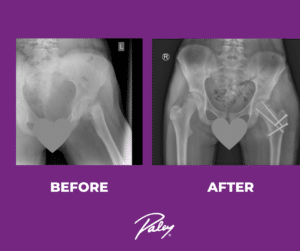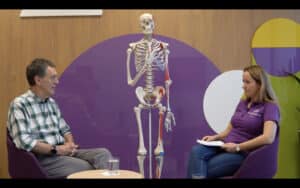Sleep affects our functioning during the day, language skills, ability to concentrate, understand the reading, memorizing and even digesting, feeling hungry or the functioning of the immune system. When we don’t get enough sleep, all of the above is disturbed. Moreover, sleep also plays a role in assimilating knowledge and learning new things. A decent nap or a night’s sleep has a positive effect on the consolidation of memories, which means that the news is better imprinted in our head and we have easier access to it.
In everyone’s life – from infancy to old age – there are moments, days or weeks when sleep is unlikely, and fatigue makes us fall asleep in every place and position. Sometimes a simple runny nose or a headache is enough to disturb sleep. Chronic lack of sleep is also typical of parents of young children or those who are hospitalized. Teenagers, on the other hand, have a shifted sleep-wake rhythm and are unable to fall asleep at 10 pm to wake up at 6 am without any problems. So they go to bed well after midnight, and they have to get up anyway when it is dawn, which may result in constant fatigue and difficulties with concentration, changes in appetite and mood disorders (of course, there may be many factors for such changes, but sleep plays a large role).
For the sake of better sleep, it is worth taking a look at the place where we sleep. It would be best if we get rid of distractions such as TV, computer or smartphone and leave them behind the door. The electronics lying next to it are very tempting to use it, and staring at the screen emitting blue light may make it difficult for us to fall asleep (because there is a disturbance in the secretion of sleepy melatonin). The sleeping room should be quiet and dark.
Both children and adults find it difficult to fall asleep if they are stressed about the next day. The pressure to fall asleep quickly causes that the body, instead of calming down and plunging into sleep, constantly wakes up. Therefore, it is better at such moments to do something else – read a book, solve puzzles, crosswords or color coloring pages, than trying hard to fall asleep. Relaxation techniques involving the gradual tightening and loosening of individual muscles may also be helpful (such relaxing and meditations are available, for example, on YouTube – so just turn on, listen to the teacher and relax).
Some parents worry that their children’s sleep has worsened after surgery. This can happen after major surgery and general anesthesia. Fortunately, this effect is temporary and it is worth being patient.
During this time, however, in addition to difficulties with falling asleep and frequent waking up, night terrors may appear. Night terrors are something other than nightmares. A child who has a nightmare often wakes up and seeks solace from the parent. The next day, she is able to recreate this bad dream and tell about it. On the other hand, children who experience night terrors the next day remember nothing and are unable to say what happened. At night, they start screaming and / or crying very loudly. Parents are not able to calm such a child, and they also feel that there is no contact with the child despite open eyes.
The sight of a child experiencing night terrors can be terrifying and parents will certainly not forget the experience. The child, despite his eyes open (although he may as well keep his eyes closed), is still asleep. Hence, it cannot be woken up. In this case, it is best to ensure your child’s safety so that they do not hit or hurt themselves, and wait out the anxiety attack without waking the child or turning on the lights. Night terrors happen quite often in children. Most often they pass spontaneously, but in any case when something bothers parents, it is worth visiting a doctor and diagnostics to exclude, for example, iron deficiency, which may increase the risk of night terrors.
Sources of knowledge and inspiration thanks to which this article was created:
- Su, X., & Wang, D.-X. (2017). Improve postoperative sleep. Current Opinion in Anaesthesiology
- Rampes S. et.al (2020) Postoperative sleep disorders and their potential impacts on surgical outcomes, The Journal of Biomedical Research






